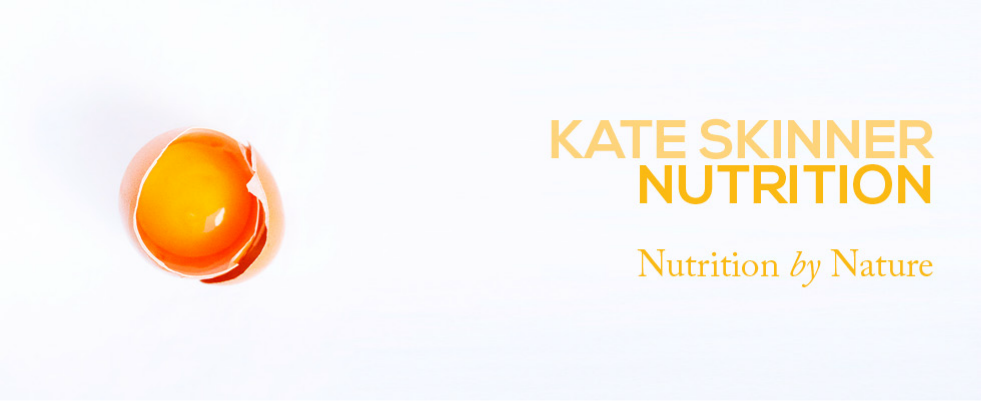When this type of behaviour repeats itself time and time again, as is commonly the case with your average yo-yo dieter, weight loss does not tend to be a lasting consequence even when it is the sole goal of such pursuits. Instead, it’s more likely that dieters end up looking and feeling worse: tired, irritable, bloated, constipated, food phobic, frustrated, unsure of what’s left to eat, and unsure of which way of eating or exercising to turn to next in the name of good health. But this time around, in worse shape, with a growing list of digestive and metabolic ailments that weren’t there before, perhaps a few food sensitivities and nutrient deficiencies now forming, lots of weird cravings and food hang-ups, maybe some hyper or hypoglycaemic issues, sleep troubles, a bit of bone loss, lack of sex drive, thinning hair and wacky menstrual cycles… dieting will do that to you. Chronic dieting will also leave you with a metabolism that’s so damaged that it no longer responds to drastic under-eating and/or over-exercising, and a body that has aged at a vastly accelerated rate.
More than 80% of people on diets will regain the weight they lose, plus more.Eating any overly restricted diet is the quickest way to ruin your heath and start shutting down your entire system. Prolonged dieting sends your body into a state of stress (starvation) and inhibits thyroid function, and the thyroid gland is the master of pretty much all your bodily systems – it is in charge of regulating metabolism and plays a major role in the production and function of hormones, enzymes, antibodies, neurotransmitters, energy and energy stores. Not only will it damage your metabolism, but excessive dieting can also increase a hunger hormone called ghrelin, and promote resistance against the function of the fullness hormone leptin, leaving you hungrier and less satiated overall. During a period of underfeeding, your cells start to prime themselves for when you do eat food, so that they can store fat better than ever before, more efficiently and more quickly than when your food energy intake was much higher. This happens particularly in the abdominal region (making it easier to gain weight in this region during and post-undereating) as fat stores in this area act as a reservoir of energy for vital organ function.
Popular diets and high-impact exercise programs emphasize ways to use up more energy and chemicals than you rebuild. This will cause you to lose weight for a short period of time, but most of the weight loss is due to breaking down cell structures, organ tissue, and muscle and bone tissue, along with fat loss. In essence, you are overstressing and starving your body, forcing it to consume itself to keep you functioning. At the same time your metabolic rate is adjusting to the under-eating and over-exercising and getting steadily lower in order to conserve energy and body tissues, which, as mentioned, won’t stand you in good stead in the long run if the diet suddenly ends and normal eating and/or exercising resume.
You need to be healthy to lose weight, not lose weight to be healthy.
The key is to realize that weight loss plays second fiddle to regenerating overall health and a properly functioning metabolism, not the other way around. It’s all too easy to get caught up in the desire for quick results in a culture of instant gratification, but health doesn’t work like that. Maintaining an ideal weight (a balanced amount of lean body tissue and a normal amount of protective fat) is a natural consequence of good health, adequate nutrition, a working metabolism and a balanced endocrine system.
Food is so misunderstood. Many people seem to think, to the detriment of both their bodies and their quality of life, that food is a necessary evil and the less you eat of it the better. These people are skipping meals, starving themselves and feeling guilty about the food they eat. Do we really have to be reminded that food is essential to life? It is the fuel that runs our bodies and the building material that keeps our muscles and organs functioning and strong. Food should be enjoyed for the life-giving nourishment, both for the body and the soul, that it provides.
The best way to really support your metabolism, is by:
- Eating regular, balanced meals that include sufficient amounts of all the macronutrients (quality protein, unprocessed carbohydrates and real fats) at each sitting to regulate blood sugar. No under-eating, no skipping meals – food is your metabolic tool. Real foods are those that you could theoretically hunt, pick, gather, milk or fish to obtain. Eat enough food! (see this post for snack ideas)
- Reducing stress and getting adequate, uninterrupted sleep. Not sleeping and resting enough is a stress that affects your health, and affects your body’s ability to rebuild after day-to-day wear and tear (see nutritional tips for getting a good night’s sleep here).
- Minimising exposure to toxins (ingested and environmental) including polyunsaturated vegetable oils (sunflower, soybean, canola, corn, etc), tobacco, diet soft drinks, artifical sweeteners, preservatives, gums, flavours and other additives.
- Light-moderate exercise – over-exercising (particularly with strenuous cardiovascular forms of exercise) and doing zero exercise are both damaging, although over-resting is preferable to over-stressing. Ideally, combine non-stimulating, calming elements for flexibility, such as stretching, with some resistance and weight-bearing training for muscle tone and joint strength and a little stimulating cardiovascular exercise just for fun.
Kate is a certified Clinical Nutritionist and offers one-on-one coaching for clients in Sydney Australia, and internationally via Skype or email. Visit the nutrition services page to find out more about private coaching, and be sure to subscribe via email and follow the Nutrition by Nature Facebook page for blog updates, articles, nutrition tips, recipes and special offers.

